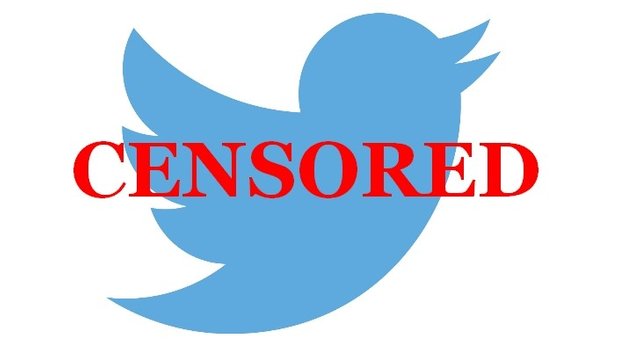Decentralized Censorship > Centralized Censorship
Lot's of people are complaining about downvoting on Steemit.
This complaining is unwarranted -- if you compare Steemit to existing social networks, Steemit is a major improvement when it comes to the censorship of content. Empowering any user to censor content as they wish is actually a big step forward for social networks and a core feature of Steemit.
Look no further than Twitter, which is currently banning accounts that mention the Olympics. Twitter, being a centrally controlled social network, can easily censor this content which is clearly bad for all participants. As a centralized company, Twitter will always be in a position where it censors content at its own discretion, at the expense of users.
Steemit, on the other hand, enables decentralized censorship for the first time on a social network. Any user who earns enough Steem power can be in a position to censor content if it exercises that right. The democratic nature of censorship on Steem is part of what makes the platform so powerful. While some that have seen it happen to them may not be happy about that, this is undoubtedly better for the community than having one central party that can abuse their power.


Yes great point I would rather be censored by other users then the actual site itself. I tried Reddit for 1 day and got off the same day because they're automated bot marked me as spam for posting more then 1 photo in a day.
You have the right to post whatever you want on steemit, and I have the right to downvote you if I don't like that content. End of story.
But it's not a downvote in the UI of Steemit.com, which most of the users are using. It used to be a downvote (before the reputation system existed) but was deliberately changed to flag. It's a flag, much like other social media sites have, which is used to prevent abuse. Flagging not only lowers payouts, but can also lower reputation scores which can prevent people from getting any further attention from others who avoid low reputation accounts.
Since this stuff is still changing, it can't be the end of the story. If it was a downvote and not a flag and if it didn't impact someone's reputation, I'd understand and agree with you.
One possibility is to fork the Steemit.com and provide an alternative interface which handles upvotes/downvotes differently and possibly doesn't even censor content with a large number of downvotes. That, at least, would give people multiple options to view the blockchain data according to their own philosophy on the matter.
Yeah. and, at worst, steemit "censorship" is a very soft form of censorship. No one can get their account deleted(as far as I know), and you can't -truly- delete posts, simply get them generally hidden from view. But you can always find the posts on the blockchain, in their original form. Which is also nice when someone's trying to pretend that they never made a post :P
Good point. People tend to get very butthurt when the get downvoted, but at the end of the day I think it's a good thing to enable people to censor as they wish.
Well, yes, the way it is is pretty good, but I dislike using the word "censor" in this context. They aren't truly censoring anything. It's all very free market in nature. People "buy"(upvote) what they want, what they like, and they "don't buy"(don't upvote) what they dislike, and if they find it terrible or whatever, they flag it.
But no matter -what-, nothing is deleted. Everything is still there, available on the blockchain, and I believe there's even a few websites that are running off the blockchain that show exactly what steemit shows, plus all the hidden/flagged stuff.
Is it accurate to call it "democratic?" Democracy includes the concept of 1-person 1-vote. On Steem, some people have thousands of votes, others almost zero, when you consider their relative voting power.
This is not a criticism of Steem.
But instead of democratic, I might say it is meritocratic censorship, since Steem Power (the source of voting power) is assigned based on (subjective) merit, whether through content rewards or investment.
Very insightful post, by the way. I am writing an article about Steem for my blog and was thinking of saying Steem is censorship-proof. Then, I thought, no, it's censorship-resistant. But that's not quite precise enough.
Steem is resistant to nation-state censorship. That's about it. Which is, of course, pretty darned awesome.
Good point, meritocratic is a better descriptor than democratic.
@erroneous-logic's reply said most of what I wanted to say. The rest I put in a reply to @laconicflow.
This word "censorship" is being used a lot, but it rubs me the wrong way because, IMO, it implies an "authority" which is making the content completely unavailable. This simply isn't the case here because everything hidden can be shown with a simple click of a "Show" button. The content wasn't "censored" in the sense of it being made unavailable (which, to me, is a core aspect of "real" censorship). Additionally, as I mentioned to @laconicflow, people are free to build their own interface by forking the Steemit.com code which doesn't hide anything at all, regardless of how many flags it has.
Those are my opinions on the topic, anyway. I see Steemit's approach as being vastly superior not because it's "decentralized censorship" but more so because it's not really censorship at all (IMO).